This week, Persian poem page presents Forough Farrokhzad
I feel sorry for the Garden! by Forough F. /foru:gh/.
Forough was one of the most remarkable ladies, and maybe the strongest one, that our literature has ever grown. She went very early just when she still had a lot to say.
In this poem, she, symbolically in simple words, describes five categories of people who are the members of her family.
She starts by saying, “no one is thinking of flowers. No one is thinking of the fish. No one wants to believe that the garden is dying; that the heart of the garden is inflamed in the sun; that the brain of the garden is gradually emptying from the green memories. And the sense of the garden seems something abstract that has rotten in its loneliness. The yard of our house is alone. The yard of our house is yawning while waiting for an unknown cloud to rain. And the pond of our house is empty. The yard of our house is alone.”
Then she begins to introduce her father, as one of those categories. She says, ” father says: it’s too late for me! It’s too late! I did my work, I have reached my end.” Then, she describes her father as a man who, all day long, reads books in his room; as a man who is indifferent about all these things; and as a man who says, ” the life or disappearance of the garden would make no difference to me after I died.”
Then, she describes her mother as a person whose entire life has been spent in praying, in the fear of being burned in the fire of the hell. Her mother is a person who believes that everything that happens, unpleasant ones, is a response to our sins. She thinks that the garden is doomed because of sins. Here, the poet describes her mother as a person who is guilty by nature! As a person who is waiting for the appearance of a savior, and the generosity that will be granted!
Then, she talks about her brother as a person who calls the garden a cemetery; a person who laughs at the disorder in the grasses (of the garden). He has addiction to philosophy. He believes that the best medicine for the garden is the disappearance of the garden. He gets drunk and punches the doors and walls! And tries to say that he is deeply frustrated, tired, and disappointed. He is a person who takes his frustration with him to streets, just like he does with his ID card, his calendar, his napkins, his lighter, and his pen. But his frustration is so small that disappears in the crowd of taverns every night.
Later, she starts talking about her sister who was a friend of flowers. She would tell the flowers the simple words of her heart whenever her mother had beaten her. And she was a friend of the fish. But now, she has turned into a person who lives in her artificial home with her artificial red fish, with the love of an artificial spouse, singing artificial songs, and giving birth to real children. She is described as a person who, whenever comes to see her family, is pregnant.
The poet continues, ” The yard of our house is alone. The yard of our house is alone. All day long, it’s the sound of something being chopped we hear from behind the door. Our neighbors are all planting mortars and machine guns, instead of flowers, in the soil of their gardens.”
She ends her work by talking about herself. She says, ” I am afraid of the day when hearts have lost themselves. I am afraid of remembering the absurdity of these much hands. I am afraid of seeing these much faces who are strangers to each other. I am like a child who thinks it’s possible to take the garden to hospital. I think.. I think.. I think.. And the heart of the garden is inflamed in the sun. And the brain of the garden is emptying from the green memories slowly.”
Click here to listen
I Feel Sorry For The Garden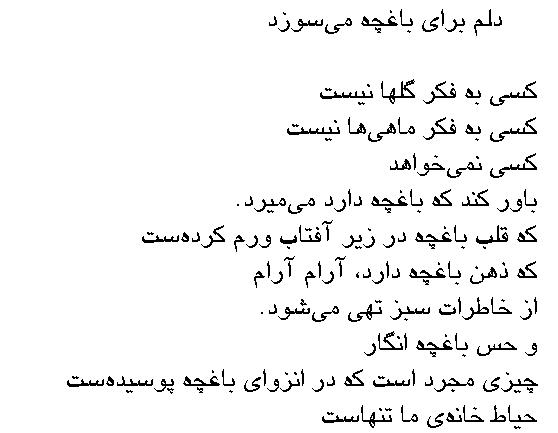
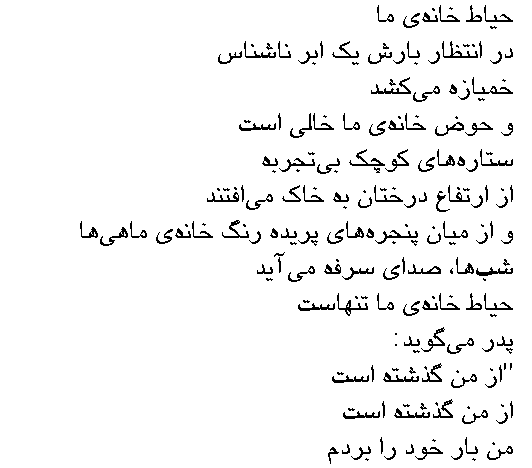
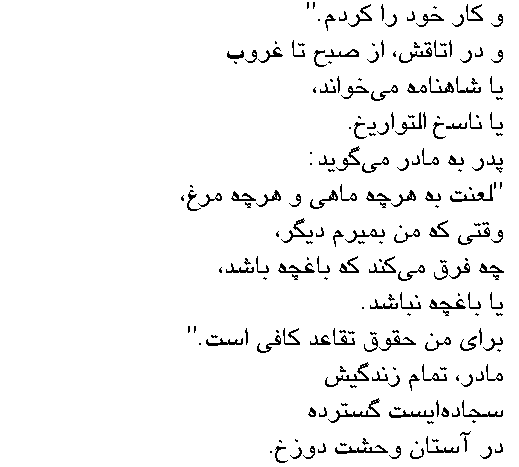
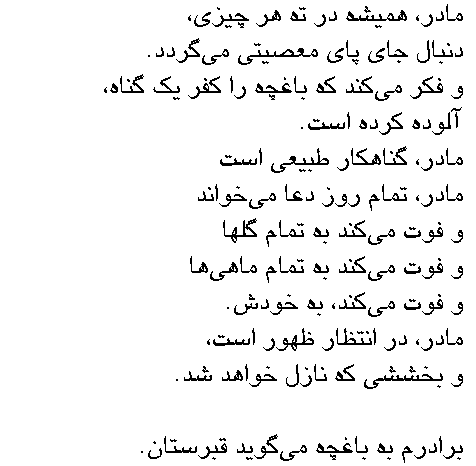
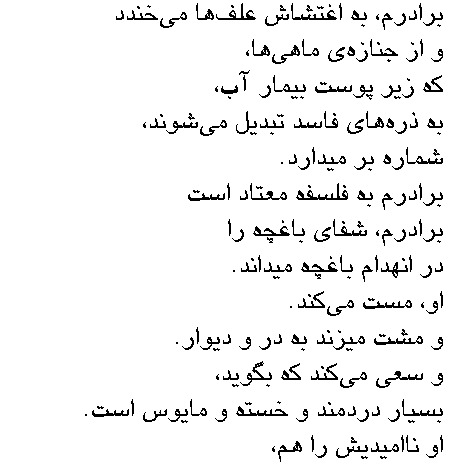

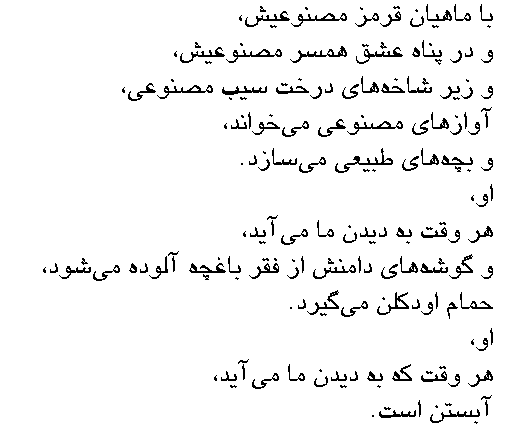
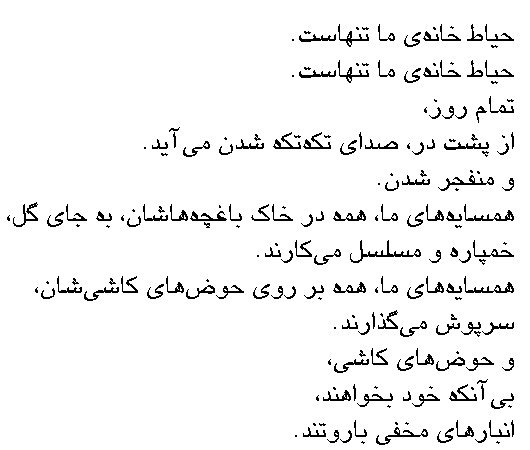

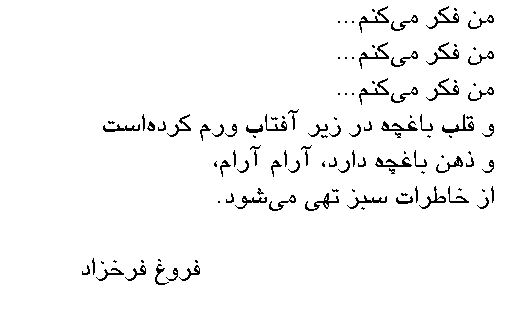
majid
May 12, 2012 @ 7:17 am
salam man ashrqe in sheram mer30
mosafer
April 3, 2013 @ 7:38 am
shokohe zananeat ra misetayam! nazanin forogh…zane Irani.
Mohsen
March 8, 2015 @ 5:05 pm
Dorood be ravaneh een sheer Zaneh irani
Ben Piper
June 24, 2016 @ 2:39 pm
Salaam, I just want to say that you are incredible for doing this website. It must have taken you hundreds of hours to complete it, and many more to keep it running day to day. Thank you for making this beautiful poetry accessible to non-native Farsi speakers who are still learning the language.